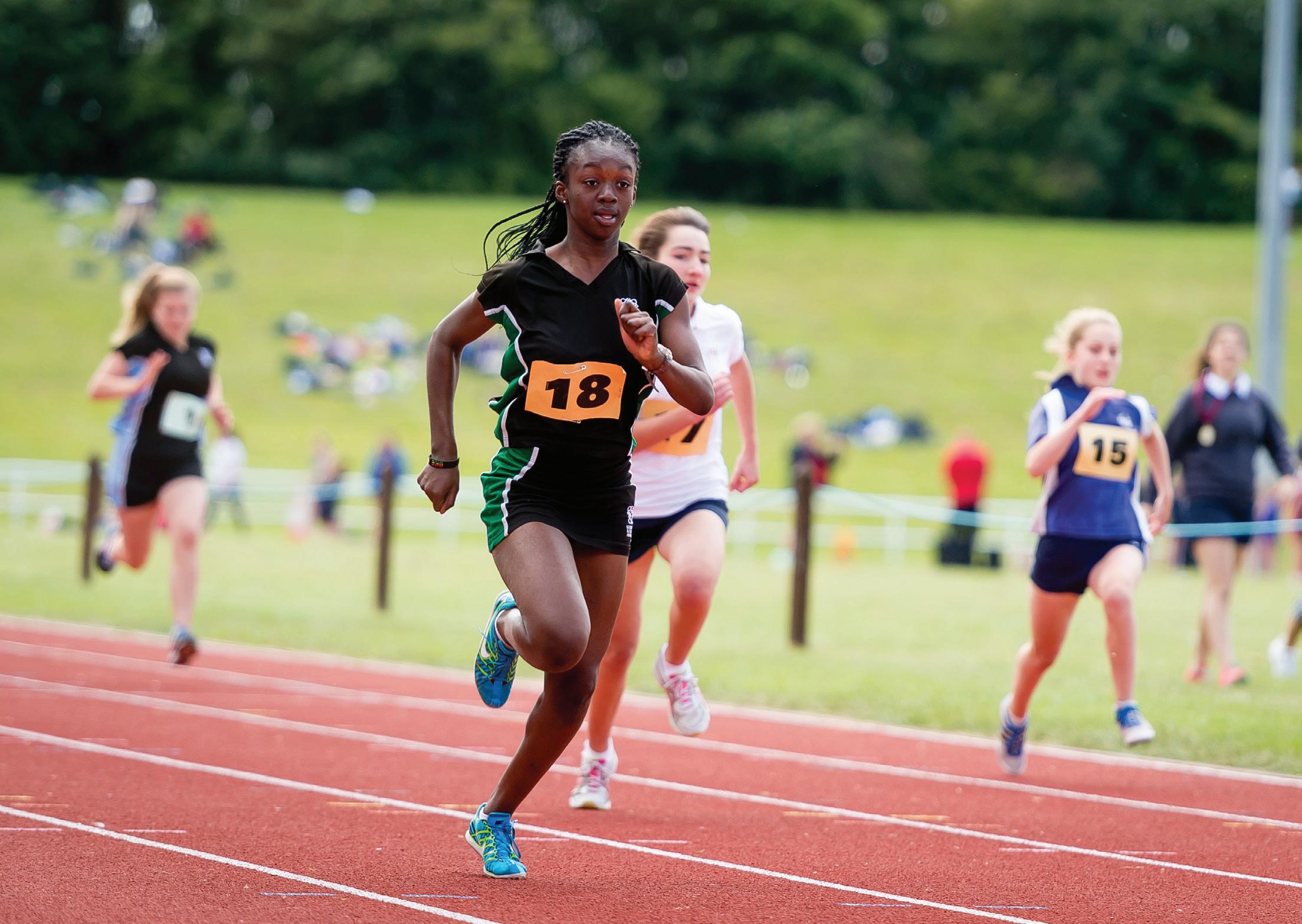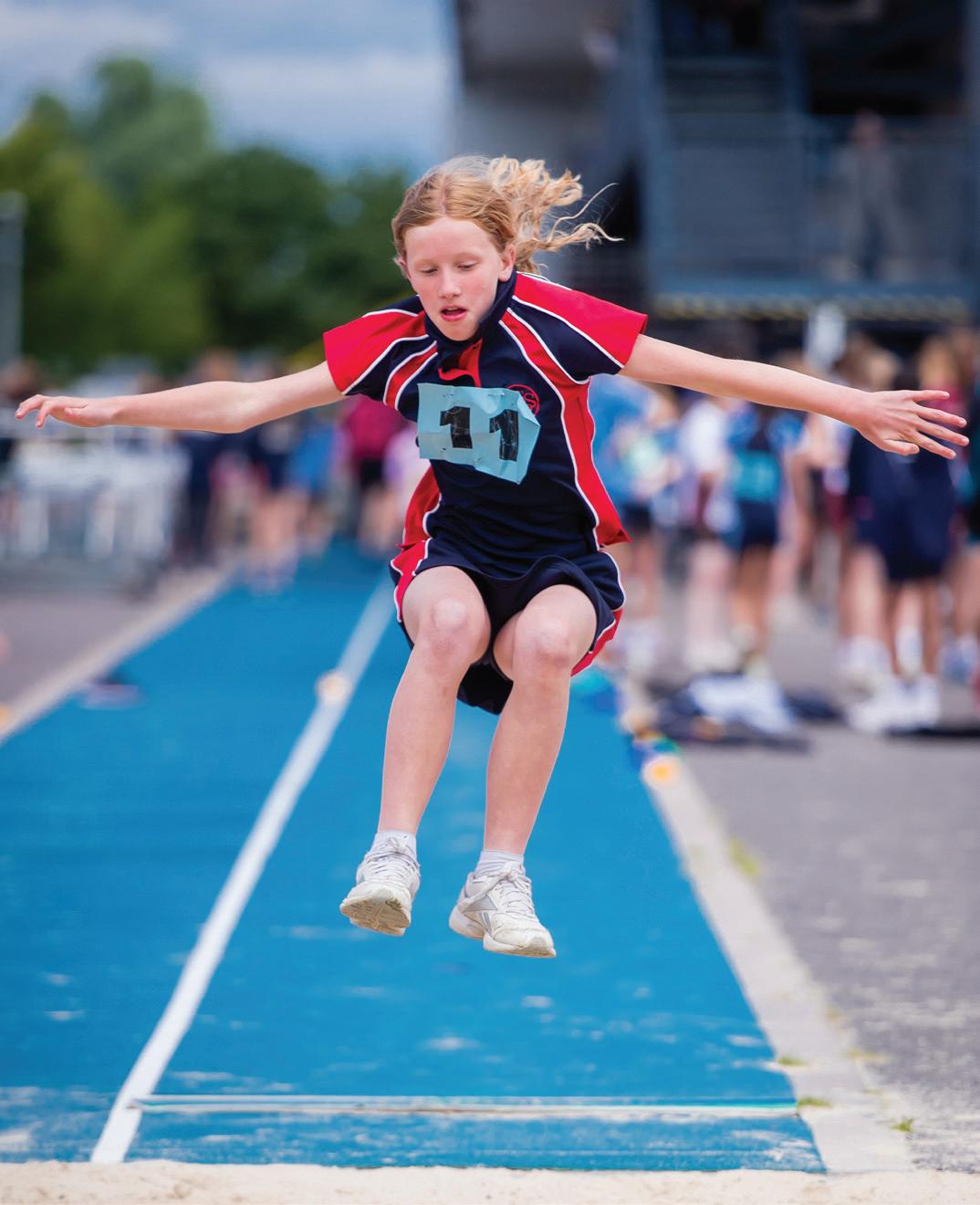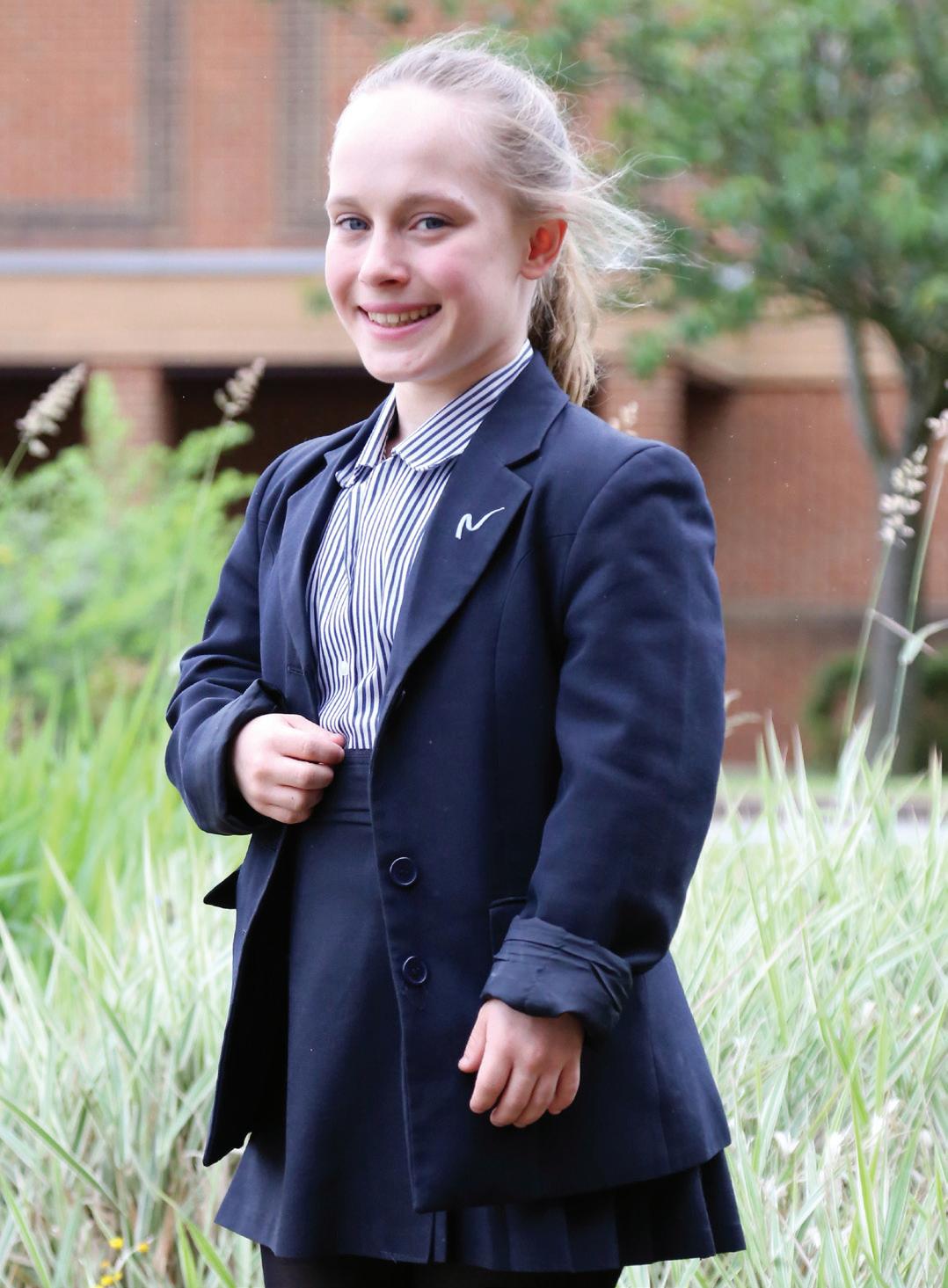
5 minute read
A sporting chance, Tom Beardmore-Gray
A sporting chance Tom Beardmore-Gray explains why the Girls’ Day School Trust invests so heavily in sport
Sport is a vital part of life throughout the Girls’ Day School Trust (GDST), and it is immensely encouraging to see the increasingly high profile of women’s sport across the world at local, national, and international level. Not only did women win the first medals for Team GB at the London Olympics, they also won the first Gold medals. Inspired by Helen Glover and Heather Stanning, Olympic champions in Rio as well as London, GDST has now acquired its own boathouse at Putney, where girls from throughout the Trust can take to the Tideway. In Rio, the first GB Gold medals in the Paralympics were won by women and we were particularly pleased that Paralympic swimming gold medallist and Northampton High School student, Ellie Robinson, could join her fellow students at the school on 4th October to watch them compete. The 15-year-old swimmer won a gold medal in the women’s S6 50m butterfly in Rio, setting a new Paralympic record with a time of 35.58 seconds. She also came third in the S6 100m freestyle final, winning a bronze medal – fantastic achievements and a great example of how elite sport can be successfully combined with academic commitments. The occasion was one of our largest sports rallies, involving over 600 girls, which took place at Northampton High School on 4th October, showcasing senior hockey, under-15 netball and primary swimming. Matches and races were fiercely contested throughout the day and, whilst winning was the ultimate goal, good sportsmanship was displayed throughout. For an organisation on a mission to support women who will make their mark on the world, it was truly inspiring to see so many young people showcasing their talents, particularly so soon after the Rio Olympics and Paralympics, where four other members of the Great Britain team had been educated in GDST schools.
Sam Quek (Hockey) and Hannah Mills (Sailing) matched Ellie’s Gold Medal, whilst Fiona Bigwood won Silver with the GB Dressage Team. Sam won her first international cap in 2008 and has since captained England as well as playing over 50 times for Great Britain. In Rio, the women’s hockey team remained unbeaten throughout the tournament and won their first ever Gold Medal in a penalty shoot out with the Netherlands. Hannah won Silver in the 470 class sailing at Weymouth in the 2012 London Olympics with her crew Saskia

Clark, but they went one better in Rio, never finishing outside the top ten crews in the regatta.
Fiona’s Rio Silver matches her medal in the World Championships of 2010 and the European Championships of 2015, and she has been competing at the top level in Europe since she was eighteen. Her Rio success is all the more remarkable since she has suffered from double vision following a fall in 2014 and wears an eye-patch when she rides.
Although she was not a medal winner, Emma Pooley is a true Olympian. Winning a Silver Medal in the cycling time trial event at Beijing in 2008, Emma was also world champion in 2010 before becoming a leading competitor in triathlon, duathlon and long distance running. Nevertheless, when Rio called, she returned to cycling as part of Lizzie Armitstead’s team, competing in her third Olympic Games.
The strength, breadth and depth of the GDST network enables us to spread success by pooling best practice in individual subject areas, including sport. We fund a range of staff development initiatives and run a highly regarded internal programme to develop members of teaching staff for senior roles. The size of our network also enables us to invest in our schools and their facilities to a degree most individual schools can’t match. This includes new all-weather pitches at Newcastle High School for Girls and new underground sports halls at South Hampstead High School and Notting Hill & Ealing High School.
When it comes to the benefits of sport, there is a mass of scientific evidence that proves that anything that speeds up circulation in the body actually wakes up the brain and helps mental function. There is also significant evidence that, for girls in particular, weight-bearing exercise in adolescence helps build bone strength and protects them from osteoporosis in later life. Active girls are also less likely to suffer from anxiety or depression, which is important not just for the health of the
Ellie Robinson

individual but for the health of the nation. Sport also builds good habits – girls who get lots of exercise in their school years are more likely to be exercising in their twenties, thirties and forties with all the health benefits that brings.
Schools face a balancing act when their student number includes the sports stars of the future. At all of our schools there are elite young sportswomen with the range and potential of Ellie Robinson. As well as supporting them – which sometimes means being very flexible with timetabling – our schools also want to develop their own top teams. At the same time, there are lots of girls who would join in if only they felt they were better at sport. So schools need a twin-track strategy, continuing to develop elite sportswomen whilst ensuring that there is appropriate and appealing physical activity for everyone.
With this in mind, the first plank of our philosophy is ‘sport for all’ – that every girl with an interest in sports or dance or other physical exercise should have that interest supported and nurtured, whether or not she will ever make the A team or its equivalent. That’s why we love it when our schools have A, B, C and D teams, and beyond, so that all girls who enjoy a sport have the chance to play it competitively.
Good schools encourage every student to find their sporting niche, whether that’s javelin or jiving! Across our schools we have such a range of sports and exercise, from acrobatics and archery through to yoga and Zumba, that there will be at least one that a girl can enjoy and possibly, through training, hard work and dedication, at which she can come to excel. Tom Beardmore-Gray is the Finance Director of the Girls’ Day School Trust










